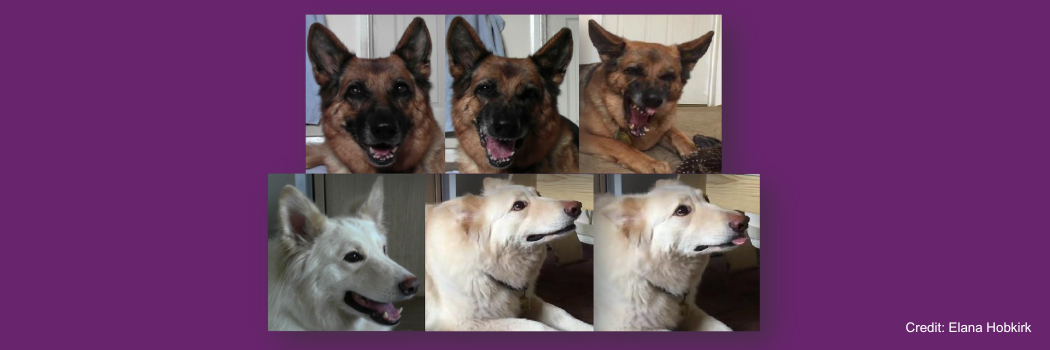
A new study from our top-rated Biosciences department has found that the process of domestication and selective breeding of domestic dogs may have accidentally diminished their ability to communicate clearly using facial expressions.
Researchers used an extended Dog Facial Action Coding System to analyse video recordings of captive wolves and domestic dogs during spontaneous social interactions and reactions to external stimuli.
Floppy ears and wrinkly faces create confusion for domestic dogs
The researchers compared wolves to domestic dogs during observed interactions and reactions and found that the wolves were essentially emoticons on four legs.
Their facial expressions mapped almost perfectly to discrete affective states like anger, fear, curiosity and joy.
However, researchers found much more ambiguity in the furry faces of domestic dogs across different breeds.
Using the extended version of the Dog Facial Action Coding System, the researchers could only predict the dogs' emotional state based on facial movements with 65% accuracy.
With domestic dogs, the same facial expression might mean the dog was feeling friendly or fearful – which is a dangerous level of confusion, especially when differentiating positive from negative emotional states.
Misreading dog's facial expressions
The study findings suggest that misinterpreting a frightened dog's facial expressions as friendly could potentially lead to hazardous situations like dog bites or attacks.
The researchers hypothesise that domestic dogs may compensate for their limited facial expressions by vocalising more than wolves during social interactions.
For now, pet owners may want to be cautious about reading too much into Rufus's wrinkles or Fido's floppy ears when trying to determine their pup's emotional state.






